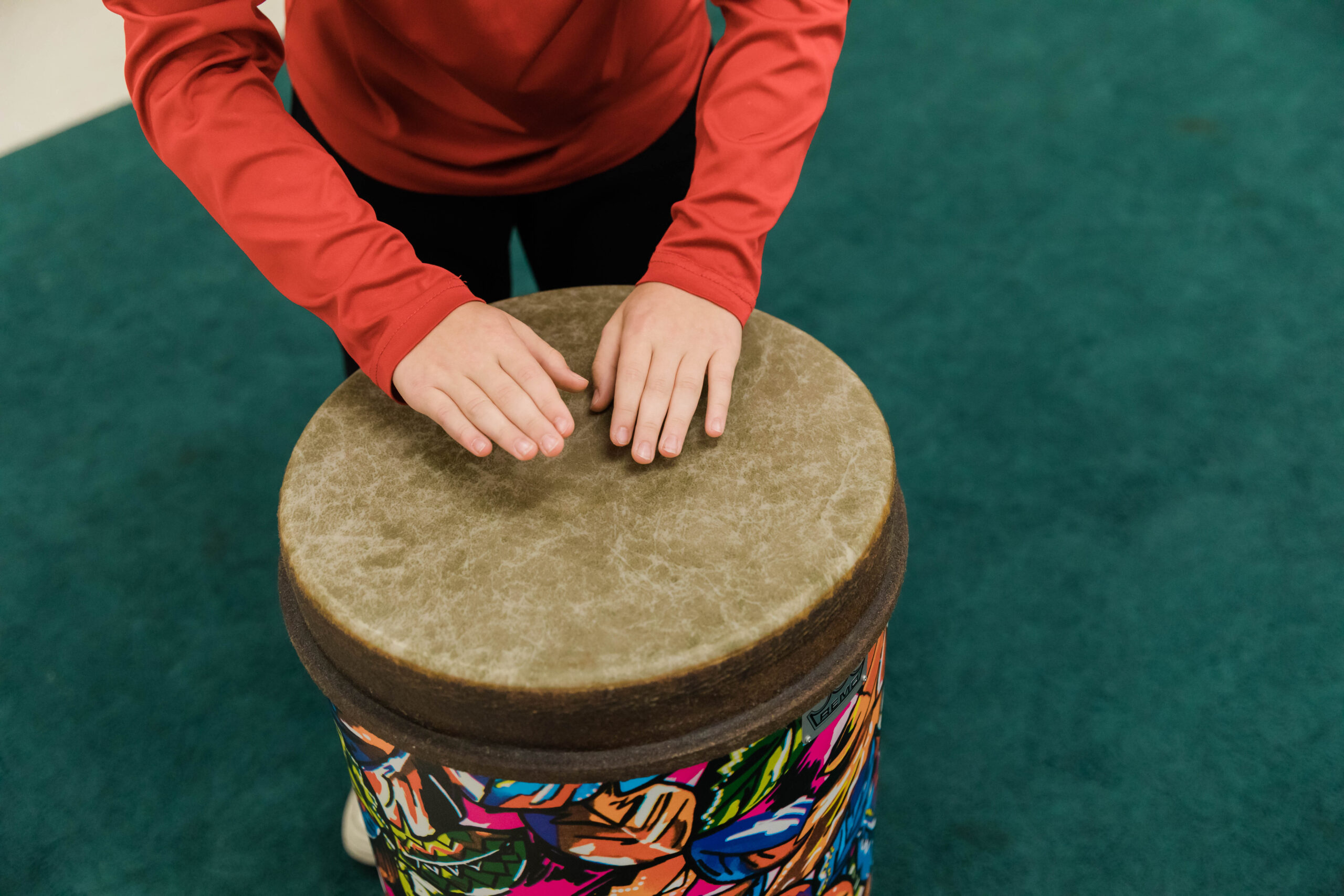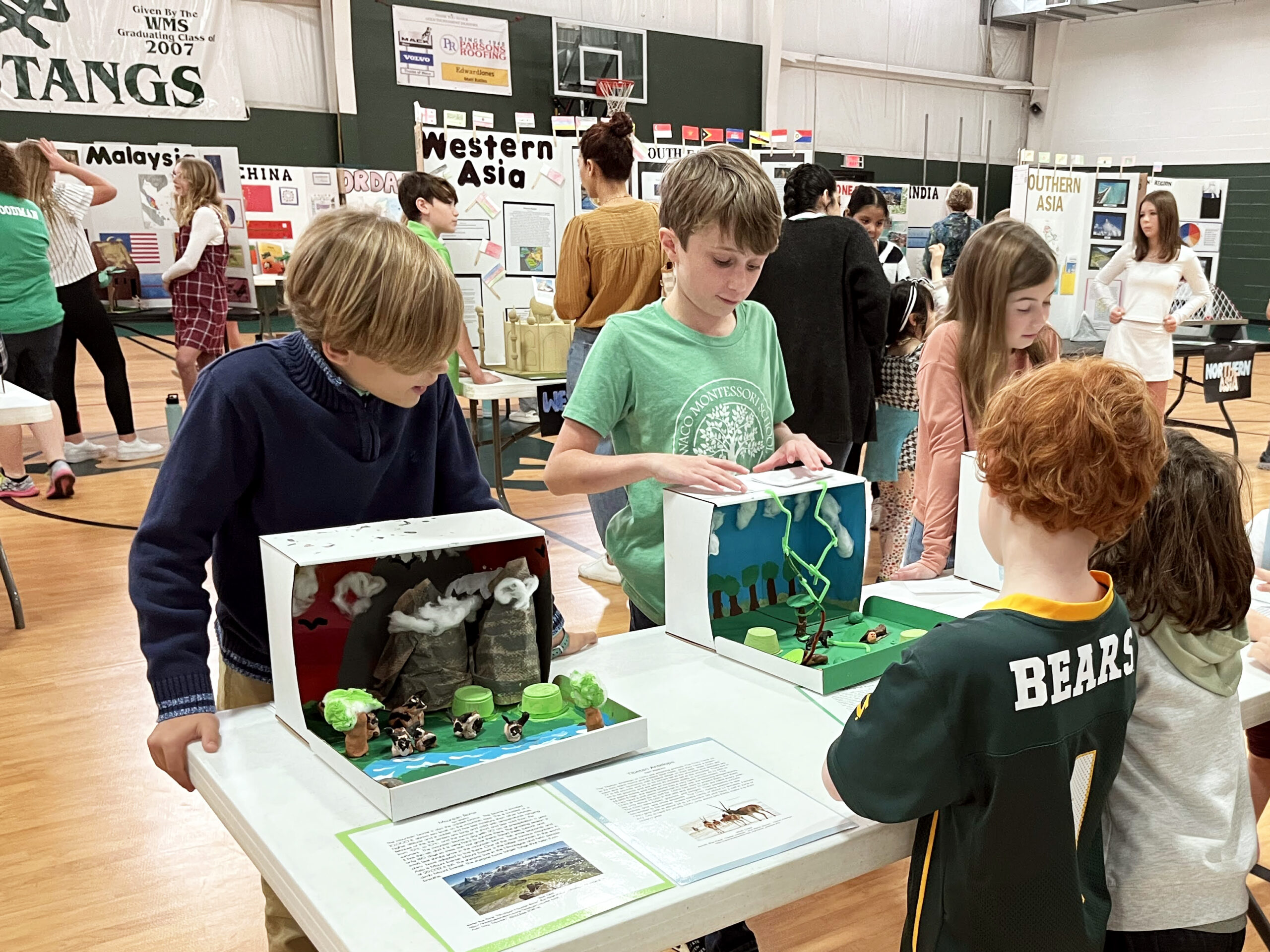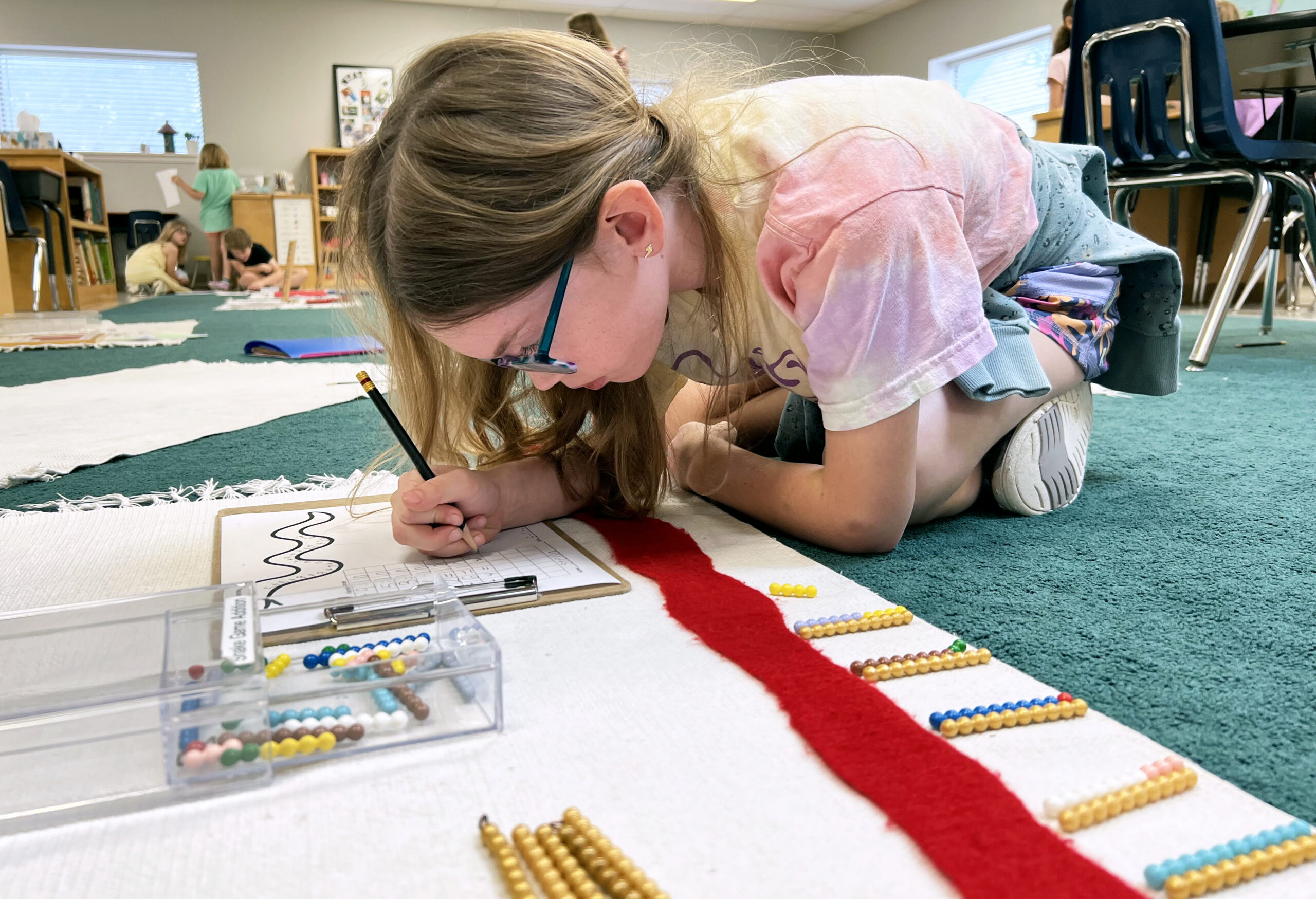An individually paced, challenging curriculum sets the elementary years apart. It encourages students to become respectful community members, where they learn to think critically and take responsibility for their learning. Elementary students enter a new phase of development where they transition from concrete to abstract thinking, develop a growing interest in socialization, broaden their creativity and imagination, and cultivate an interest in fairness, social justice, and compassion.
The Elementary program includes Lower Elementary multi-age classrooms for grades 1–3 and Upper Elementary multi-age classrooms for grades 4–6. Academic foundations are built by various teaching methods used to present the language, math, and cultural curriculums. Students learn to plan their daily work to develop time-management skills.
GRADES 1–6 8:15 A.M. – 3:15 P.M. daily
Lower Elementary
The Lower Elementary Environment is designed to enhance a child’s joy of learning, teaching skills necessary to become an independent, lifelong learner. Children can work at individual tables or on a rug on the floor. Beautifully crafted Montessori materials line the shelves in the classroom with fiction and non-fiction books. Practical life lessons include caring for and maintaining the shelves throughout the school year. The academic curriculum includes:
- Individual language lessons, including phonics, reading, grammar, word study, and writing Individual math lessons with both concrete, hands-on materials and abstract problems
- Small group lessons in grammar, geometry, reading, penmanship, and cursive
- Weekly cultural lessons in a large group format
- Functional, physical, and political geography, as well as botany, zoology, and history extensions
Beyond the academic curriculum, students are taught grace and courtesy lessons. Teachers and older students model respect for oneself and others. Developing time management and leadership skills go hand in hand with personal social skills. Student leaders take turns presiding over class meetings used for problem-solving and acknowledgments. Field trips about areas of study are planned throughout the year.

“The satisfaction which they find in their work has given them a grace and ease like that which comes from music.“
—Maria Montessori, The Discovery of the Child
Upper Elementary
The Upper Elementary Program is a natural progression of the Lower Elementary program, allowing students to build on their previous experiences and extend their learning to new levels. As they progress, they work toward abstraction while branching into new areas. Students are given weekly geometry, grammar, geography, history, and science lessons. At the end of each lesson, an assignment is given that is due one week later. The addition of assignments to the work week provides students with new opportunities in time management, as well as handling long-term deadlines.
Teachers are committed to working with each student individually, doing their best to meet the diverse needs of every child in the classroom. Each child will be able to progress at an appropriate pace, whether they can progress quickly through the curriculum or need more time to master it. This program, in particular, provides students with unique growth opportunities. They can participate in events such as the Culture Fair, History or Science Fair, competitive sports, and the annual class trip. Students are prepared for middle school when they graduate, regardless of where they transition.

